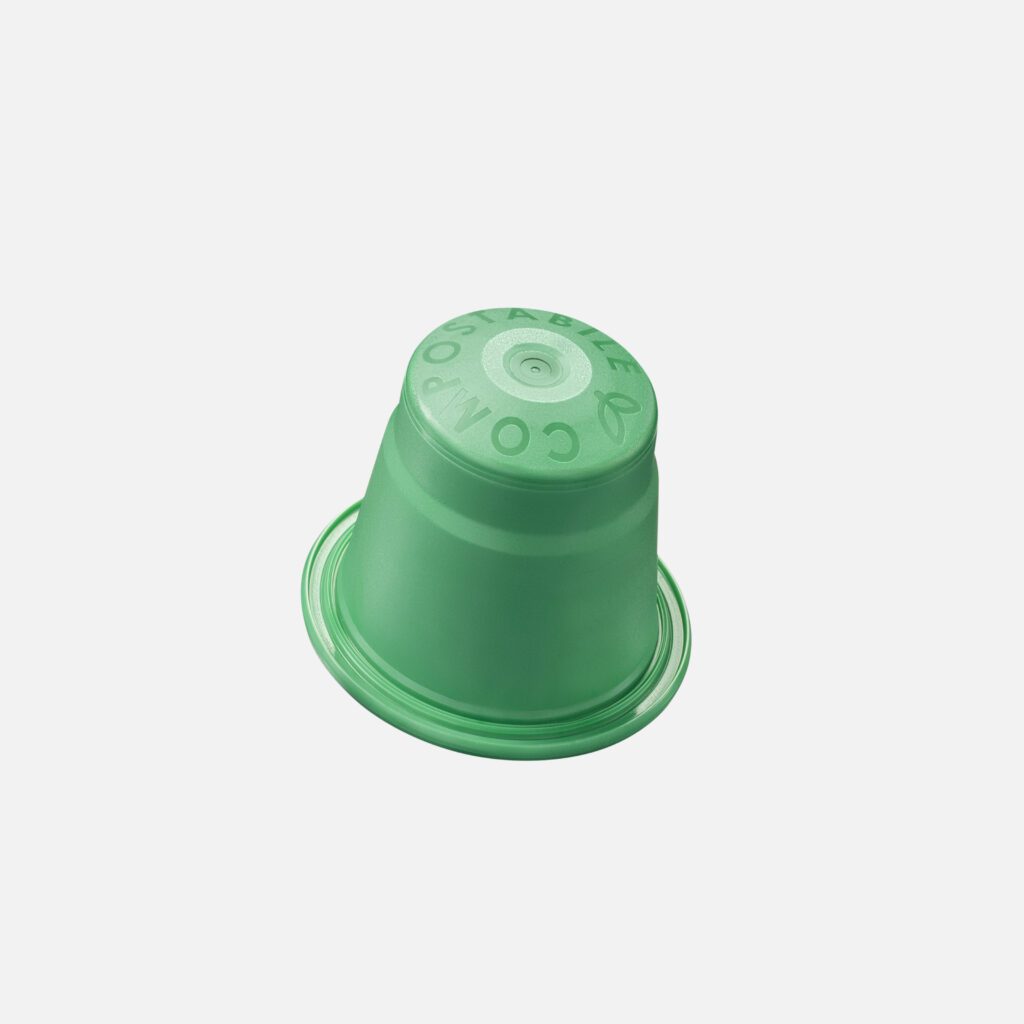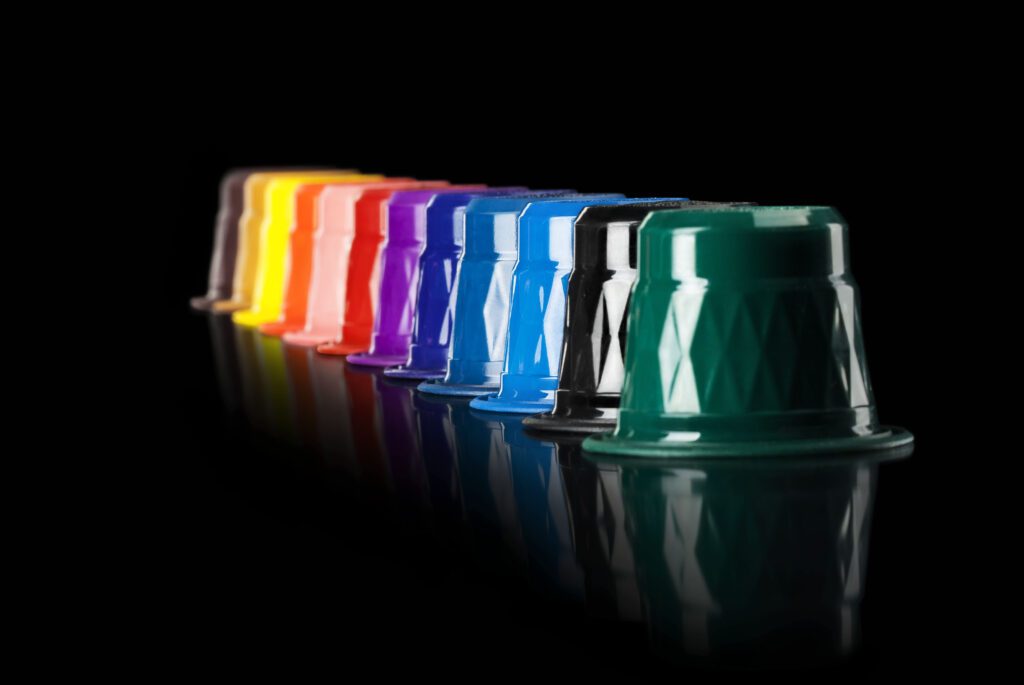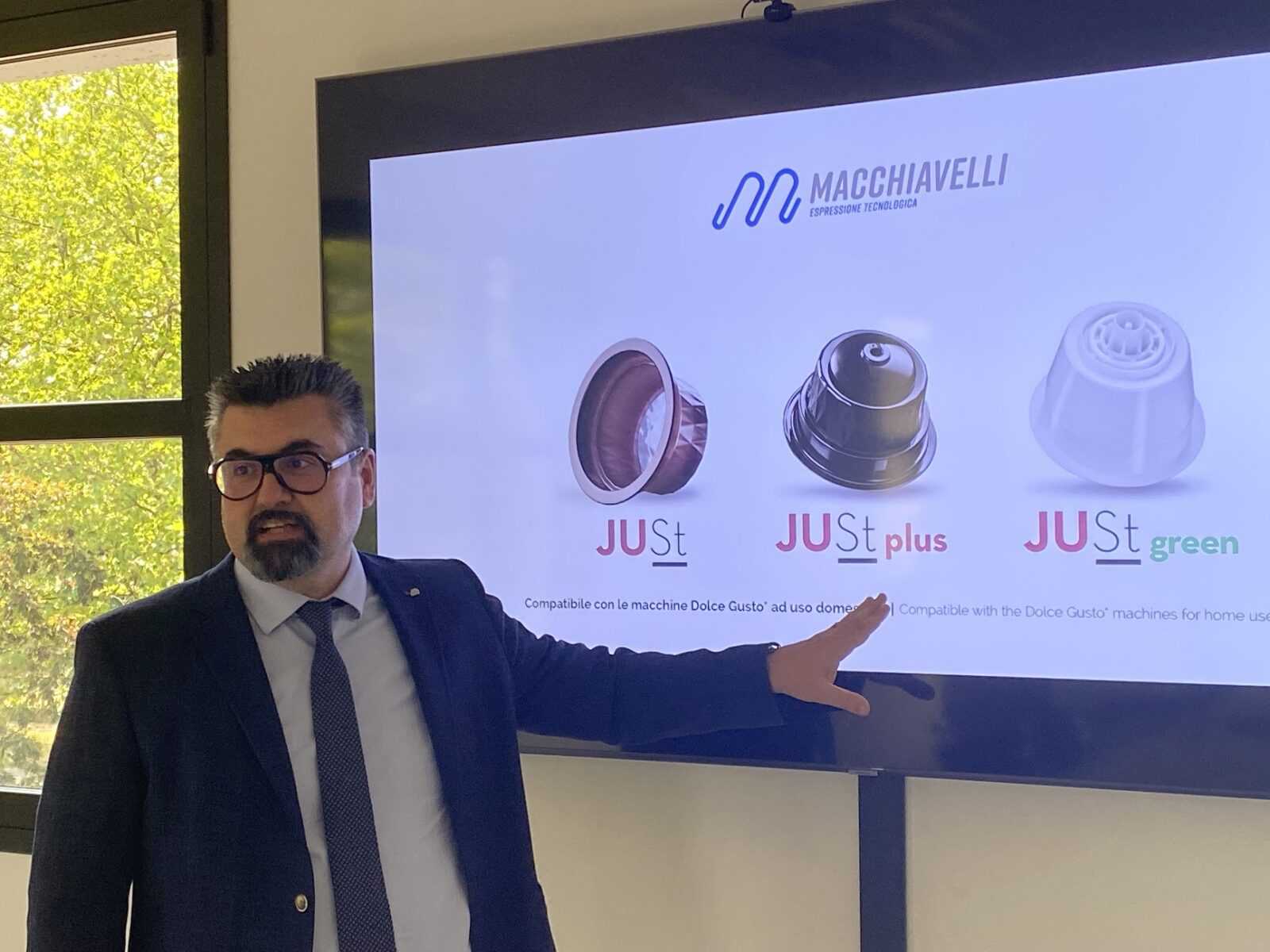BOLOGNA, Italy – Macchiavelli S.r.l. is a Bologna based company with 50 years of experience in the designing and marketing of plastic products. It was the first company to develop compatible capsules for all of the main systems on the market and has now more than 30 patents, boasting both a unique knowledge of plastic materials and a specialization in the coffee industry.
Among the company cutting-edge research is the development of compatible compostable capsules, in response to the ever increasing demand of sustainable solutions by roasters and end customers.
To understand Macchiavelli ’s approach to the market, we talked with Davide Macchiavelli, chief executive of the company.
How do you produce billions of capsules?
“High quality processes, machine technology and the courage to invest: these are the drivers that allow us to reach such an ambitious result as the production of billions of capsules.
As a matter of fact, the empty capsule is a single-use product for the B2B market that is requested in extremely high numbers and has low margins that can be achieved only combining an efficient production and high-quality standards.
However, our company culture, one of Macchiavelli ’s trademarks, is the crucial element. I can count on a professional team with world-class expertise that shares the same business vision as myself. This allows me to grow, ensuring a high and constant level of product performance.”
You recently moved to a new site: what has changed and why?
“We moved because our previous factory was no more adequate for our production volumes, which have grown significantly over the years. Now we have three times the space: we worked in a 2.200 square meter plant and now we have more than 6.000.
The company’s infrastructure is forward-looking: the factory is completely digitized, and all of the systems are interconnected. Today Macchiavelli is fully embracing the Industry 4.0 revolution.
All of this is key in meeting emerging needs: our organization works continuously 24/7 and we only stop for vacations.
This is possible only thanks to an efficient quality evaluation system and constant interconnection, all factors that guarantee traceability as well as improvements at the process level.”
Do your clients ask to visit the plant?
“In the current situation visits are limited, but we’re normally happy to host our customers to show them our company facilities and our R&D laboratory.
The latter, especially, is a sign of how much we have invested in innovation. We have made test benches where we go to pull the product’s telemetry data, a process that allows us to evaluate structural and performance parameters. This is possible thanks to processes such as logging the dispensing pressure curves and monitoring the temperatures and weight of the drinks in the cup, all operations that we have managed to automate.
Laboratory testing is an essential activity to keep improving, in line with our philosophy: we never settle, even if our products are already functioning well. We strive for excellence.”
Your research and development center is also a place where you imagine the future of portion products
“Yes, that’s partially true, even though most of our products are compatible capsules, which means some requirements depend on the systems made by main players such as Nespresso, Nestlé and Lavazza.
Our goal is to make capsules that leverage the features of the target system in the best way possible, to allow our clients to produce the coffee that they are going to market as best as they can.”
 Is there such a thing as a supercapsule? Something that isn’t yet on the market?
Is there such a thing as a supercapsule? Something that isn’t yet on the market?
“In our industry things move incredibly fast: currently, the key issue is sustainability and the capsule of the future will be fully sustainable.
Portioned coffee is becoming the most important way of consuming coffee and the consumer sensibility has changed. It is clear, then, that the problem of recovering the used capsule will become increasingly more relevant over time.
We have always been working to make environmentally friendly products and we have been investing in compostable and recyclable solutions for ten years.
Today, innovation and sustainability are closely linked together: there isn’t one without the other.”
Is temperature or pressure more of an issue in the search for the ideal material for the sustainable supercapsule?
“Green materials are in a phase of rapid evolution as companies are working hard on biopolymers. In the last few years there has been a big improvement in the physical and mechanical characteristics of these raw materials. It is still, however, a relatively young market, that has been around only for ten years. On the contrary, plastics have been used since the beginning of last century: a major technical, infrastructural and time gap. That of biopolymers is an industry that is still finding its feet.
Our goal is to make an environmentally friendly product that guarantees the dispensing of a drink that is of the same quality as the commonly used aluminum or plastic capsule. This is the major barrier to sales today, in addition to the higher cost necessary to cover the price of materials that are still industrial prototypes and which isn’t comparable to that of standard materials.
Currently the functional parameters of temperature and pressure present critical issues. Since the materials are biodegradable, they must be sensitive to physical changes so that, once they have been disposed of with food waste, they can correctly break apart in the industrial compost plants, in strict compliance with the UNI EN 13432 standard.
“Is it true that so-called “green” products aren’t fully carbon neutral?”
Let’s clear up a point of contention. A compostable product that meets the UNI EN 13432 standard doesn’t create microplastics. These come from other processes, such as the wear and tear of car tires and of the clothes that we commonly wear and which almost always are part synthetic. Their use creates tiny residues that end up in rivers and oceans through rain, such as with microplastics.
It is, however, a fact that “green” materials have vastly improved and the quality has gotten higher.
The packaging industry, among others, is adapting, but you can’t achieve full sustainability only through the use of compostable capsules. Other important factors, for instance, are the use of recyclable mono-material products, separate waste collection, improvement in packaging, and the use of tools that, after the disposal, can efficiently separate the different capsule components.
Sustainability is, in short, a complex and global subject that involves society as a whole, as well as the manufacturing industry and the various governments.
Businesses need to commit to making products with an increasingly lower environmental impact, governments must issue and enforce unique recycling legislation and people will have to learn a new disposal culture based on common rules.
Every small improvement will be a major contribution.”
Macchiavelli, you are a B2B operator: what is your customers sensibility towards compostability, despite its cost?
“The higher cost is still preventing a big increase in sales. For this reason, Macchiavelli has invested heavily over the years towards cutting the production cost of compostable products, bringing them on par with those of standard capsules. There is still the issue of the higher cost of raw materials, which is currently three/four times higher than a normal polymer and this has a strong impact on the final cost.
Despite this, our clients, especially in the last couple of years, have become more interested in “green” products and they show a higher propensity to invest. All of this is becoming more practical.”
Can providing coffee inside a well manufactured compostable capsule be an added value for sales?
“The most important sales drivers are still the usability of the product and the quality of the drink. Secondly, it is important that the capsule meets all the compostability properties described in the UNI EN 13432 standard. However, it is still essential that the level of the product delivered is comparable to that of a standard capsule.
It is our responsibility to make sure that this is the case, and it is the result of an appropriate design, a high-quality raw material and high performance sealing films. It isn’t easy, but with our latest environmentally friendly capsules we managed to do just that.
Today, sealing films and compostable materials have also made huge advances. They’re able to show performances on par with standard materials, such as the aluminum used for the Nespresso system and the plastic films employed by Dolce Gusto and the Lavazza systems.”
Macchiavelli, do you feel that compostability is a winning factor in choosing a capsule over another that doesn’t biodegrade?
“Of course! Compostable capsules are gaining market share. In the short term we will see a diversification of the offers available and this will increasingly benefit sustainable solutions. Compostable options will stop being niche products and will gain relevance on the market. However, I don’t believe they will completely replace standard solutions.”
 How much do you believe in compostable products?
How much do you believe in compostable products?
“We have been the first to invest in the research and development of compostable capsules. We consider it a challenge.
Sustainable materials are making progress and I think it is important that these biopolymers start being produced on a massive scale, using chemical matrices as well.
The “biobased” question, that is the level of renewed material content in a biopolymer, is certainly important, but it shouldn’t limit the practical distribution and application of these materials.
We risk not being able to meet the real needs of the packaging market. We need to work on this aspect: how to make packaging sustainable, eliminating all the negativity that currently surrounds this subject.
A quality packaging is an essential contributor in food preservation, human health (think about the pharmaceutical industry) and, finally, waste reduction. Human population keeps increasing and we can’t afford to throw away large quantities of food products because of packaging preconceptions.
This doesn’t change what I’ve said before about collection, recycling, and correct disposal.
All of these activities, together, create sustainability.”










